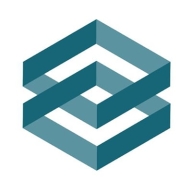

MongoDB Atlas and OpenJDK Java do not compete directly; MongoDB Atlas excels in data management and scalability, whereas OpenJDK Java is known for a robust development platform.
Features: MongoDB Atlas offers automated scaling, backup services, and sharding capabilities. OpenJDK Java is valued for its high-performance runtime environment and compatibility with numerous frameworks and libraries. MongoDB Atlas's cloud-native architecture is tailored for modern data management needs while OpenJDK Java provides development versatility and seamless integration capabilities.
Ease of Deployment and Customer Service: MongoDB Atlas focuses on seamless cloud deployment and comprehensive online support with resources for reducing operational complexity. OpenJDK Java allows for a straightforward setup, benefiting from extensive community support, though cloud integration may need additional expertise.
Pricing and ROI: MongoDB Atlas employs a consumption-based pricing model offering scalability, which may lead to higher costs with extensive use, providing beneficial ROI for scalable projects. OpenJDK Java, as open-source software, offers a low-cost development gateway and potentially strong ROI in application development, especially for enterprises.

MongoDB Atlas stands out with its schemaless architecture, scalability, and user-friendly design. It simplifies data management with automatic scaling and seamless integration, providing dynamic solutions for diverse industries.
MongoDB Atlas offers a cloud-based platform valued for its seamless integration capabilities and high-performance data visualization. It features advanced security options such as encryption and role-based access control alongside flexible data storage and efficient indexing. Users benefit from its robust API support and the ability to manage the platform without an extensive setup process. Feedback suggests improvements are needed in usability, query performance, security options, and third-party tool compatibility. While pricing and support services could be more economical, there is a demand for enhanced real-time monitoring and comprehensive dashboards, as well as advanced containerization and scalability options supporting complex database structures.
What are the key features of MongoDB Atlas?
What benefits should you consider in a solution like MongoDB Atlas?
In healthcare and finance, MongoDB Atlas manages payment transactions and facilitates real-time analytics, powering SaaS solutions and storing large volumes of user data. It enhances scalability, performance, and security for cloud hosting, IoT integrations, and Node.js environments, widely favored for its flexibility and capability to support microservices.
We monitor all Database as a Service (DBaaS) reviews to prevent fraudulent reviews and keep review quality high. We do not post reviews by company employees or direct competitors. We validate each review for authenticity via cross-reference with LinkedIn, and personal follow-up with the reviewer when necessary.